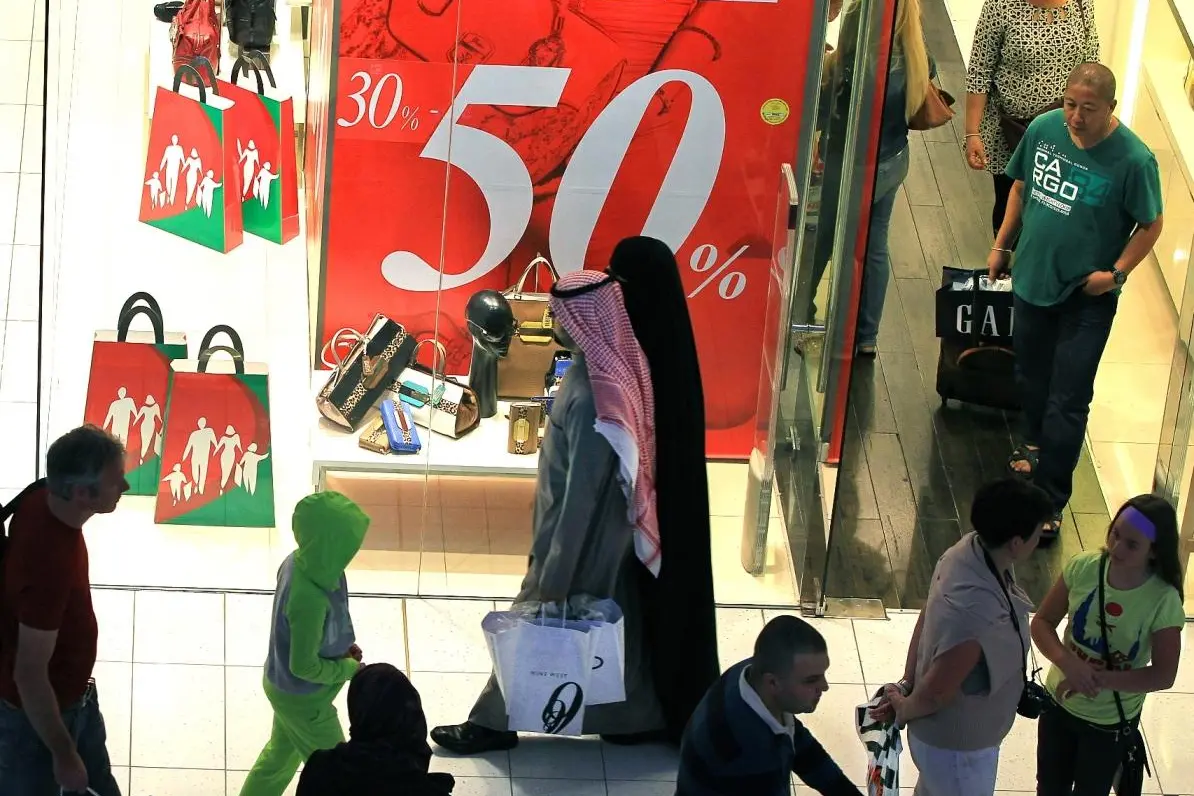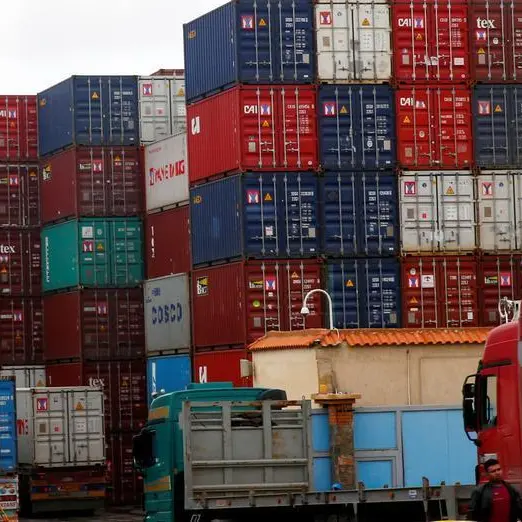PHOTO
The prices of several goods and services in the United Arab Emirates (UAE) are expected to rise on Monday, when a five percent value-added tax (VAT) will be implemented for the first time. Several UAE residents told Zawya they had purchased a number of expensive items ahead of the introduction of the new tax.
On the morning of Sunday December 31, 2017 Dubai’s Marina Mall was filled with shoppers.
“I am so worried about the VAT,” said Sanna Al-Harash, a Yemeni resident in the UAE. She was shopping in the mall on Sunday for gifts ahead of the introduction of VAT and to benefit from sale prices offered during the Dubai Shopping Festival, which started last week and runs until January 28.
“I did buy (a) few expensive things just because I know the tax is going to spike it up,” said Al-Harash. “I bought a car, I bought a purse and I bought a stove. I am serious. Because everything is already very expensive here and the tax is just going to make it worse. I heard that maybe some things are going to get cheaper, but I highly doubt it though, right? Not in Dubai,” she added.
On the other hand, tourists said they are not really affected by the introduction of VAT.
“I will not stop shopping because of the VAT,,” said Prossy Pamon, a tourist who was also shopping in Dubai Marina Mall on Sunday morning. "I am a tourist here, so I will pay depending on the price and what I need."
As for the business community, Vikas Panchal, head of business at Tally Solutions, an international accounting and compliance software provider that has branches in the UAE, told Zawya in a phone interview last Thursday that he expects a high rate of compliance among businesses in the UAE, despite some concerns among business leaders.
“A lot of businesses have started registration and people would be able to comply to a large extent,” Panchal said. “The government has also made it clear that everybody who is falling under the VAT registration will have to comply,” he added.
Panchal said the UAE government has done a good job in informing the business community and the people about the new tax. The UAE’s Ministry of Finance held several VAT workshops in different emirates throughout last year.
All six Gulf Cooperation Council (GCC) countries, including Saudi Arabia, the UAE, Kuwait, Bahrain, Qatar and Oman agreed in 2016 to implement VAT at a standard rate of five percent on a number of goods and services that included food, clothes, cars and jewellery to boost their national incomes. GCC economies were badly impacted by a drop in global oil prices that began in 2014.
However, only the UAE and Saudi Arabia have so far gone ahead with VAT implementation plans. Oman’s finance ministry decided last month to postpone VAT implementation until 2019, Reuters reported. A Qatari finance ministry source also told Reuters that Doha is likely to introduce VAT in the second quarter of 2018.
Further reading:
(Reporting by Yasmine Saleh; Editing by Michael Fahy)
(yasmine.saleh@thomsonreuters.com)
Our Standards: The Thomson Reuters Trust Principles
Disclaimer: This article is provided for informational purposes only. The content does not provide tax, legal or investment advice or opinion regarding the suitability, value or profitability of any particular security, portfolio or investment strategy. Read our full disclaimer policy here.
© ZAWYA 2017
On the morning of Sunday December 31, 2017 Dubai’s Marina Mall was filled with shoppers.
“I am so worried about the VAT,” said Sanna Al-Harash, a Yemeni resident in the UAE. She was shopping in the mall on Sunday for gifts ahead of the introduction of VAT and to benefit from sale prices offered during the Dubai Shopping Festival, which started last week and runs until January 28.
“I did buy (a) few expensive things just because I know the tax is going to spike it up,” said Al-Harash. “I bought a car, I bought a purse and I bought a stove. I am serious. Because everything is already very expensive here and the tax is just going to make it worse. I heard that maybe some things are going to get cheaper, but I highly doubt it though, right? Not in Dubai,” she added.
On the other hand, tourists said they are not really affected by the introduction of VAT.
“I will not stop shopping because of the VAT,,” said Prossy Pamon, a tourist who was also shopping in Dubai Marina Mall on Sunday morning. "I am a tourist here, so I will pay depending on the price and what I need."
As for the business community, Vikas Panchal, head of business at Tally Solutions, an international accounting and compliance software provider that has branches in the UAE, told Zawya in a phone interview last Thursday that he expects a high rate of compliance among businesses in the UAE, despite some concerns among business leaders.
“A lot of businesses have started registration and people would be able to comply to a large extent,” Panchal said. “The government has also made it clear that everybody who is falling under the VAT registration will have to comply,” he added.
Panchal said the UAE government has done a good job in informing the business community and the people about the new tax. The UAE’s Ministry of Finance held several VAT workshops in different emirates throughout last year.
All six Gulf Cooperation Council (GCC) countries, including Saudi Arabia, the UAE, Kuwait, Bahrain, Qatar and Oman agreed in 2016 to implement VAT at a standard rate of five percent on a number of goods and services that included food, clothes, cars and jewellery to boost their national incomes. GCC economies were badly impacted by a drop in global oil prices that began in 2014.
However, only the UAE and Saudi Arabia have so far gone ahead with VAT implementation plans. Oman’s finance ministry decided last month to postpone VAT implementation until 2019, Reuters reported. A Qatari finance ministry source also told Reuters that Doha is likely to introduce VAT in the second quarter of 2018.
Further reading:
- For more details on the UAE’s VAT law, click here.
- For more on the UAE’s executive regulations, click here.
- For Zawya’s special coverage on VAT's introduction to the GCC, click here.
(Reporting by Yasmine Saleh; Editing by Michael Fahy)
(yasmine.saleh@thomsonreuters.com)
Our Standards: The Thomson Reuters Trust Principles
Disclaimer: This article is provided for informational purposes only. The content does not provide tax, legal or investment advice or opinion regarding the suitability, value or profitability of any particular security, portfolio or investment strategy. Read our full disclaimer policy here.
© ZAWYA 2017





















